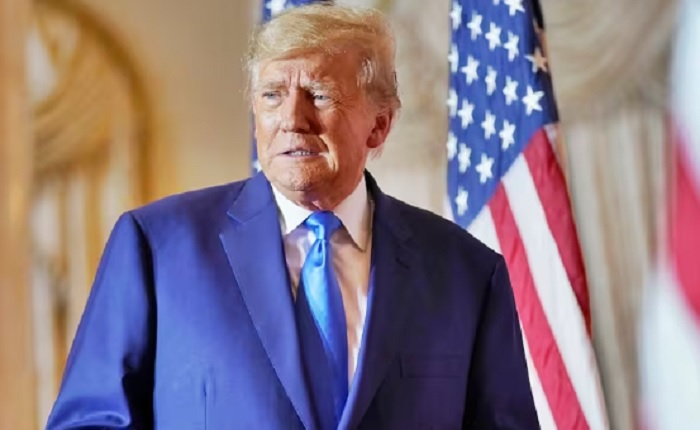The trial will start on March 4, 2024, according to the federal court presiding over former president Donald Trump’s federal election meddling lawsuit.
The decision was made after a Monday courtroom argument between special counsel Jack Smith’s team and Trump’s attorneys on when the matter should go to trial.
According to a filing made earlier this month by Smith, bringing Trump to trial by January 2 would “vindicate the public’s strong interest” in a quick trial.
Trump’s attorneys, on the other hand, asked Judge Tanya Chutkan, the federal judge in charge of the case, to set the trial date for April of 2026, which is more than two and a half years from now. This request was made in part because of the length of time they claimed they would need to review the substantial amount of discovery evidence the government had provided in the case.
Judge Chutkan stated that by scheduling the trial for March, she felt she was providing “adequate time” for preparation for Trump’s legal team while also protecting “the public’s interest in seeing this case resolved in a timely manner.”
After Chutkan’s decision, John Lauro, an attorney for Trump, stated that while they will adhere to the date she set, “we will not be able to provide adequate representation” and that it would deprive him of “effective assistance of counsel.”
Chutkan said that she had briefed the Manhattan judge presiding over Trump’s hush money case about the possible overlap. After Trump entered a not guilty plea to a 34-count indictment against him this May accusing him of fabricating company documents in connection with a hush money payment made to adult film actress Stormy Daniels days before the 2016 presidential election, the case is set to go to trial in late March.
Although his office was the first of four to file charges against Trump, Manhattan District Attorney Alvin Bragg declined to comment to ABC News and has previously stated that he would not oppose to other cases going to trial first.
In opposition to the prosecution’s suggested January trial start date, Lauro said during Monday’s hearing that doing so would be a “miscarriage of justice” and that the special counsel was attempting to turn this into a “show trial.”
Mr. Trump, the president, has a right to a fair trial. This is not a desire for a quick trial, Lauro remarked; rather, it is for a show trial.
In four months, a case of this magnitude has never been tried in the history of the United States, according to Lauro. “This individual deserves appropriate representation because his liberty and life are at risk. He is the same as every other American.
The judge responded, “I understand, Mr. Lauro, but you won’t receive two more years. Trial will not take place in 2026.
The government, on the other hand, had not cited any other cases that had gone to trial within five months of the indictment, according to the judge.
Trump pleaded not guilty earlier this month to charges that he engaged in a “criminal scheme” to rig the 2020 election by recruiting a group of alleged “fake electors,” using the Justice Department to launch “false election crime investigations,” attempting to recruit the vice president to “alter the election results,” and spreading false claims of a stolen election as the Jan. 6 riot raged. All of these actions were done in an effort to undermine democracy and maintain power.
Trump has refuted all allegations of impropriety and called the accusations “a persecution of a political opponent.”
The former president’s attorneys claimed in a filing made after the indictment that the 2026 deadline was required because the government had given them roughly 11.5 million pages of discovery. They claimed that if they had started reviewing the documents today, “we would need to proceed at a pace of 99,762 pages per day to finish the government’s initial production by its proposed date for jury selection.”
Regarding the volume of discovery, Judge Chutkan observed on Monday, “You’ve known this was coming.” “Mr. Trump and/or his counsel had control of much of this material for an extended period of time,” the statement continued.
Every American citizen, in Lauro’s response, has a right to “counsel with a reasonable amount of time to prepare.”
The idea that Trump’s legal team only started putting together his defense at the time he was indicted, however, was disputed by special counsel prosecutor Molly Gaston. She cited Trump’s written and video statements made during the Jan. 6 House select committee’s proceedings, where he put forward various defenses for his actions, as well as “extensive pre-indictment litigation” that his attorneys were engaged in as they tried to stop various witnesses from testifying before the D.C.
Gaston claimed that the special counsel’s team was given permission to reveal at the hearing on Monday that between August 2022 and March 2023, Trump’s legal team surreptitiously battled to stop or restrict the scope of grand jury testimony from 14 different witnesses in five different sealed procedures.
Gaston stated, “We are not beginning over at indictment in this instance.
The “near-daily” criticisms of the prosecution and the court by Trump, according to Gaston, made it even more important for his case to proceed to trial as soon as his defense is ready. Gaston made this argument during Monday’s hearing.
Trump “has publicly disparaged witnesses,” she claimed. He has criticized the impartiality of the judiciary and the District of Columbia residents who serve as our jury pool, which might sway the jury’s decision.
As she did at the beginning of the hearing, Chutkan cautioned the parties that she was “watching carefully” for any activities that would have an effect on the jury pool in Washington, D.C.
